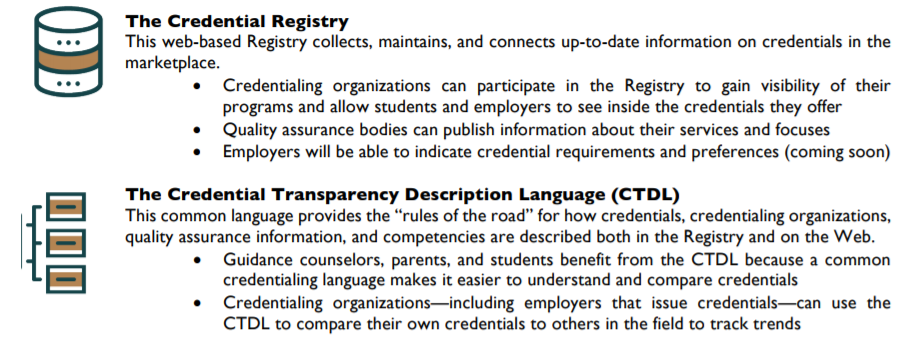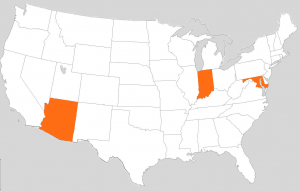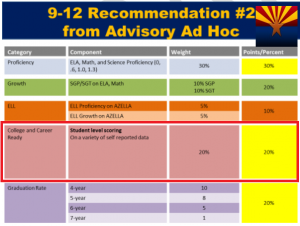Learners today are no longer preparing solely for careers in their communities, states or even country, but rather within the global economy. At the same time, when individuals enter the workforce, they increasingly are called upon to engage with a diverse set of colleagues, work with international supply chains, hold multiple perspectives and develop products and services for a more diverse and culturally conscious group of consumers.
Within this context, it is clear there is a greater need to ensure all learners are entering the workforce global competent and prepared for the ever-changing world. Yet global competency is not often an explicit focus of Career Technical Education (CTE) programs.
To elevate this critical issue, Advance CTE partnered with Asia Society, Longview Foundation, American Association of Community Colleges (AACC) and the Association of Career & Technical Education (ACTE) on Preparing Tomorrow’s Workforce: The Global Learning Imperative for Career and Technical Education Programs at Community and Technical Colleges. This paper builds on the foundation from a paper released in 2015, which focused on how global competency can and should be integrated into secondary CTE programs of study, and explores the role postsecondary institutions can play in advancing global competency.
This paper provides data and evidence on why and how community and technical colleges can lean in on “internationalizing” their programs and embed global competency in curriculum and instruction, along with specific examples from leading institutions like Ivy Technical Community College of Indiana, Central Piedmont Community College in North Carolina and University of North Carolina at Chapel Hill. The examples in this paper aim to support community and technical colleges and their faculty as they work to integrate global competence into existing CTE courses and advance their missions of graduating career-ready learners.
In the coming months, Asia Society will work to create new tools and resources to assist postsecondary CTE faculty in integrating global issues and perspectives into their courses. If you are interested in participating in this project, please contact Heather Singmaster, Director of CTE, Center for Global Education, Asia Society: [email protected]. To view current tools and resources for middle and high school educators, click here.
Kate Kreamer, Deputy Executive Director


 High-quality Career Technical Education (CTE) blends academic and technical skills to provide learners with the real-world skills necessary to succeed in today’s workforce. The integration of Advanced Placement (AP) courses into CTE programs of study promotes career-readiness by encouraging the development of these critical academic and technical skills. Advance CTE has previously partnered with the College Board to explore
High-quality Career Technical Education (CTE) blends academic and technical skills to provide learners with the real-world skills necessary to succeed in today’s workforce. The integration of Advanced Placement (AP) courses into CTE programs of study promotes career-readiness by encouraging the development of these critical academic and technical skills. Advance CTE has previously partnered with the College Board to explore  Digital literacy and computer science skills are increasingly necessary for success in today’s workforce, even in fields that are not directly related to information technology. As such, state leaders are recognizing the role that a robust computer science education strategy plays in preparing learners for their future careers and numerous states passed policies related to computer science during their 2018 legislative sessions.
Digital literacy and computer science skills are increasingly necessary for success in today’s workforce, even in fields that are not directly related to information technology. As such, state leaders are recognizing the role that a robust computer science education strategy plays in preparing learners for their future careers and numerous states passed policies related to computer science during their 2018 legislative sessions.
 Meanwhile, the Ohio Department of Education expanded options for students on the credential graduation pathway by
Meanwhile, the Ohio Department of Education expanded options for students on the credential graduation pathway by  It is possible that 2017 will be a pivotal year for Career Technical Education (CTE). With
It is possible that 2017 will be a pivotal year for Career Technical Education (CTE). With  Over in the Grand Canyon State, the Arizona State Board of Education approved a comprehensive (albeit somewhat confusing) college and career readiness indicator to include in the state’s accountability system. The
Over in the Grand Canyon State, the Arizona State Board of Education approved a comprehensive (albeit somewhat confusing) college and career readiness indicator to include in the state’s accountability system. The